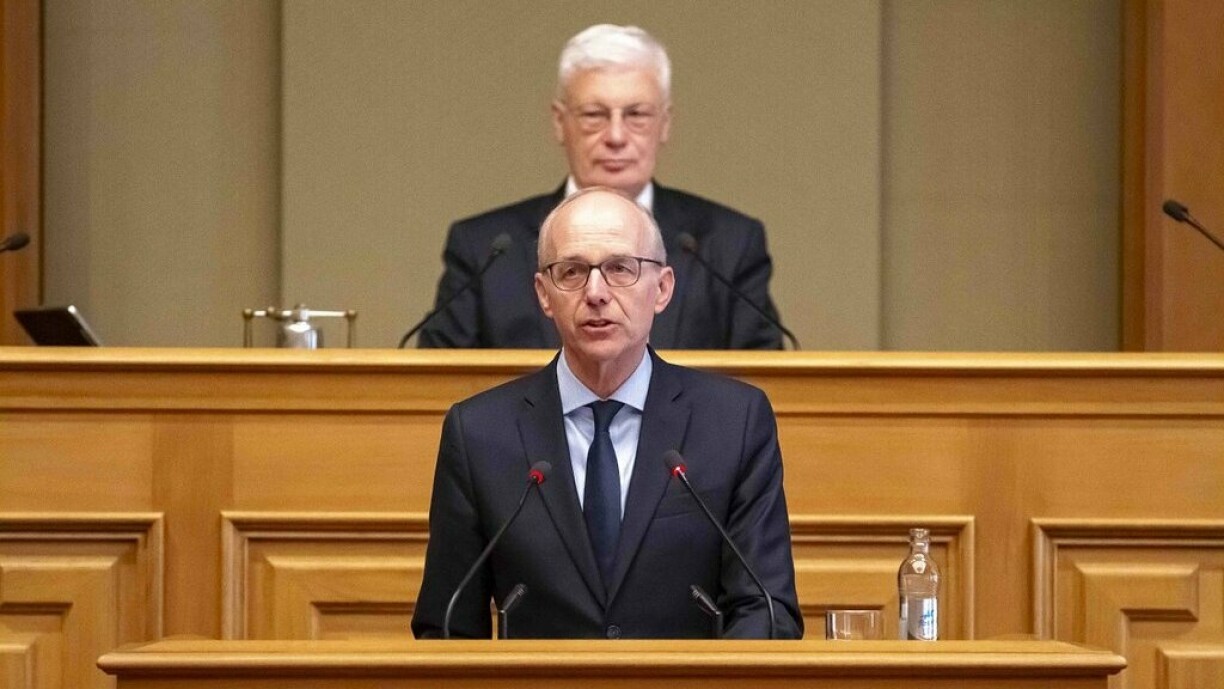
Prime Minister Luc Frieden delivered the annual State of the Nation address to the Chamber of Deputies on Tuesday afternoon, framing his government’s agenda under the dual motto: “Progress through stability. Stability through progress.” He stated that progress without effort is but an “illusion”, asserting that progress should not be taken for granted and that daily effort is needed.
Luxembourg will increase its defence spending from €800 million to €1.2 billion by the end of 2025 – five years earlier than originally planned – Frieden announced during his speech. The spending hike will bring the military budget to 2% of GNI, with potential for further increases depending on outcomes at the NATO summit in June.
Frieden characterised Luxembourg as facing a pivotal historical moment, with rapid geopolitical, technological, social, and ecological changes challenging traditional alliances and systems.
To fund the additional defence expenditure, the government will reprioritise infrastructure projects and introduce a state bond open to public participation.
Frieden also unveiled sweeping pension reforms, including a gradual extension of contribution years by three months annually and the introduction of phased retirement, allowing workers to transition into retirement through combined part-time work and partial benefits.
He warned that pension expenses will soon exceed revenues and proposed diverting part of consumption tax proceeds, like CO2 taxes, toward shoring up the system. Targeted support for at-risk retirees and incentives for voluntary savings will therefore be introduced.
Additional safeguards include targeted aid for seniors at risk of poverty and enhanced incentives for private supplementary pension schemes. Minister of Social Security Martine Deprez will present detailed proposals before summer recess.
Economic recovery is underway, Frieden said, citing forecasts made by the National Institute of Statistics and Economic Studies (STATEC) of 2.5% GDP growth this year and 2.2% job growth next year. The PM asserted that recent tax cuts, public investment, and deregulation have helped reverse the recession of 2022–23.
The construction sector has also shown signs of stabilisation, according to the CSV politician, who credited governemnt measures like partial unemployment schemes and state purchases of off-plan properties (VEFA). The PM further argued that early recovery signs are visible, with existing home transactions doubling and new home sales nearly quadrupling in 2024.
Highlighting progress on social policy, Frieden said the government had delivered on its promise to boost purchasing power. He accordingly noted that a single person earning €50,000 now takes home €1,000 more per year, and that low-income single parents pay half the tax they did in 2023.
On the topic of tax reform with a single tax class, Luc Frieden mentioned the possibility of a new, more favourable tax rate close to that of Class 1A, as well as the option of a transitional phase for Class 2 – married and civil partnership couples – to prevent disadvantages.
Other support measures cited by the PM included the higher minimum wage, increased housing aid, and a tripled energy bonus.
On labour reform, Frieden defended increased Sunday work hour flexibility but emphasised it would remain voluntary. Responding to union protests planned for 28 June, he insisted that dialogue with unions “does not necessarily imply co-decision”.
The government plans to invest €3 billion over six years – through public and private funds – to make Luxembourg a hub for secure European data processing, including AI and quantum technology. In connection with such new technologies, Frieden also announced measures for mental health, including additional beds in child and adolescent psychiatry.
In energy policy, €150 million will be allocated to support households and businesses next year, while 50 new measures to streamline renewable energy projects are expected shortly. Frieden contended that Luxembourg’s industry needs clean energy – but that it also must be affordable.
Agriculture will remain a priority, with new subsidies for greenhouse construction and monitoring of the EU–South America ‘Mercosur’ trade deal’s impact on local farmers. Frieden pledged government support for those suffering under the agreement.
In justice and policing, staff increases and legislative changes are planned to adapt to a growing population, the PM vowed.
The PM described the world at present as a “harsh” reality, pledging to not stand by idly but seize opportunities as they present themselves. He noted that only through competitiveness and growth can a strong welfare system be financed.
Frieden concluded with a call for national unity, describing cooperation and stability as the foundation for Luxembourg’s continued progress.